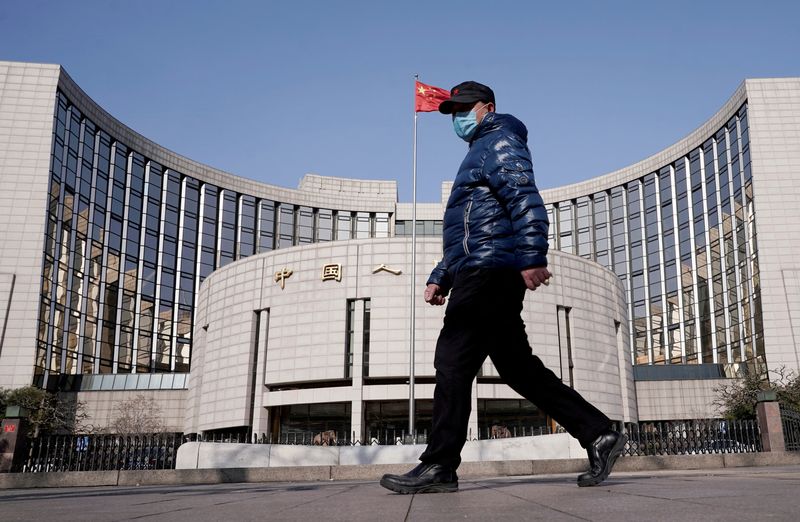By Jamie McGeever
(Reuters) – A look at the day ahead in Asian markets from financial markets columnist Jamie McGeever.
Asia is poised to start this week as it ended last week, with risk assets and investor sentiment supported by growing confidence in the US economic ‘soft landing’ and the easing of financial conditions following the decline in the dollar and US bond interest.
This week’s regional economic and policy events calendar is packed with top-level releases that are sure to give local assets a strong boost, especially from China.
October’s import and export figures will be released on Tuesday, and on Thursday we’ll see bank lending, money supply, producer price inflation and consumer price inflation figures, all also for October.
China’s surprise economic index turned positive three weeks ago, but despite stronger-than-expected GDP growth in the third quarter, that momentum has dissipated. This week’s data dump will provide a clearer picture of how the economy started the fourth quarter.
Elsewhere in Asia, the key economic indicators this week will be the latest consumer inflation figures from Thailand, the Philippines and Taiwan, and third-quarter GDP from the Philippines, Hong Kong and Indonesia.
Indonesian GDP figures and Thai inflation figures will be released on Monday.
According to a Reuters poll, Indonesia’s quarterly growth is expected to more than halve from 3.86% to 1.71%, and annual growth is expected to remain essentially stable at just above 5%.
The rupiah snapped an eight-week losing streak last week, recovering from a three-and-a-half-year low of nearly 16,000 per dollar.
The Thai baht, meanwhile, climbed 1.5% on Friday, marking one of the strongest rallies this year. Further progress on inflation could pave the way for further removal from last month’s one-year low of around 37.20 per dollar.
On the policy front, Tuesday’s Reserve Bank of Australia interest rate decision is the regional highlight of the week. Economists polled by Reuters expect the benchmark interest rate to be raised by 25 basis points to 4.35%, breaking a streak of four postponed meetings as inflation proves surprisingly strong.
Also on Tuesday, the Bank of Korea will publish the minutes of its latest policy meeting, and on Thursday the Bank of Japan will publish a summary of the views of board members from its Oct. 30-31 policy meeting.
Japanese corporate earnings are in flux this week, with banks and financial companies likely to come under scrutiny in light of the BOJ’s policy shift. With the yen still weak around 150 per dollar, could the yen soon retest its recent 33-year high?
While Asian and emerging stocks had their best weeks since July last week, gaining about 3%, they underperformed their US and global peers, which rose 5% or more.
Given the magnitude of the drop in dollar and government bond yields on Friday, there could be room for emerging and Asian markets to catch up and perhaps even outperform this week.
These are the most important developments that could give the markets more direction on Monday:
– Indonesia GDP (Q3)

– Thailand CPI inflation (October)
– Japanese services, composite PMIs (October)
(by Jamie McGeever; editing by Josie Kao)


